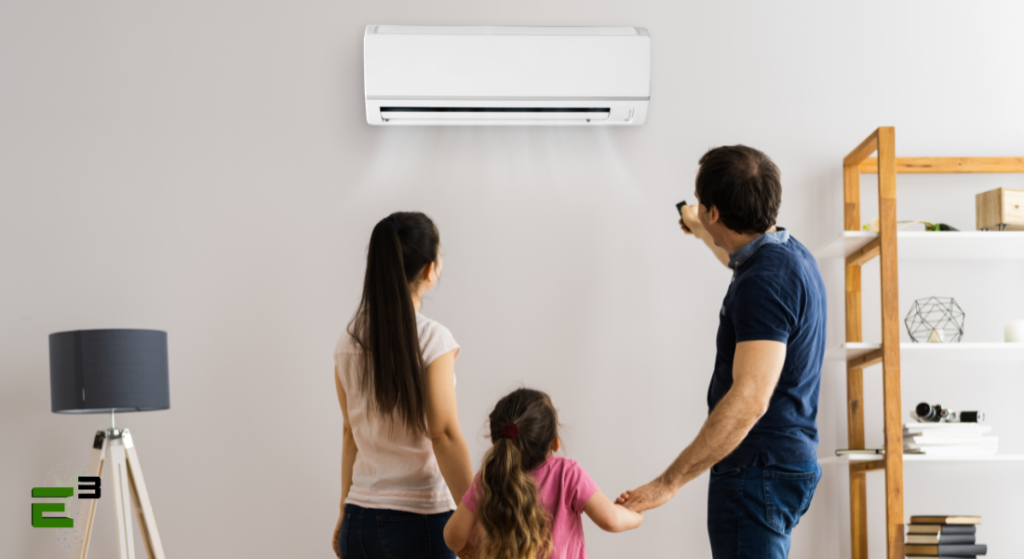Air conditioning is a revolutionary invention that has transformed not only the way we live, but also how we experience the seasons. As we approach spring, this innovation becomes even more essential. Spring brings about the rebirth of nature, with longer days, milder temperatures, and the promise of renewal. However, it also brings with it the gradual increase in temperatures as we move away from the winter chill towards the summer heat.
In this context, air conditioning plays a crucial role. As the days grow warmer and the sun shines more intensely, thermal comfort becomes a priority. This is where air conditioning comes into play, providing a refreshing escape from the rising heat. Whether in residential, commercial, or industrial settings, air conditioning plays a key role in keeping temperatures under control, ensuring comfort and productivity during the spring months.
Moreover, air conditioning is not limited to just thermal control. It also plays an important role in improving indoor air quality, filtering out impurities and allergens, which is especially relevant during spring when seasonal allergies can afflict many people. In summary, air conditioning is not just a modern convenience; it is a necessity that becomes even more evident and valued during the transition of spring.

Spring Comfort Essentials
The use of air conditioning during spring plays a crucial role in ensuring thermal comfort, controlling humidity, and promoting health and well-being. As temperatures begin to rise during this transitional season, air conditioning becomes an indispensable tool for maintaining pleasant and habitable indoor environments.
First and foremost, thermal comfort is a fundamental aspect that air conditioning provides during spring. As the days grow longer and the sun becomes more intense, indoor temperatures can quickly rise, making indoor spaces uncomfortable and even unbearable. Air conditioning offers an effective solution to this problem, allowing people to control the thermal conditions of the spaces they live and work in, keeping them cool and comfortable even on the hottest days of spring.
In addition to thermal comfort, air conditioning plays an important role in humidity control during spring. As temperatures begin to rise, so does the humidity level, creating an environment conducive to the growth of mold, bacteria, and other microorganisms harmful to health. Air conditioning helps maintain adequate humidity levels, thereby reducing the risk of humidity-related problems such as allergies, respiratory issues, and property damage caused by condensation and mold.
Furthermore, air conditioning plays a crucial role in promoting health and well-being during spring. Indoor air quality can be significantly affected during this season due to increased plant pollen, dust accumulation, and higher humidity. This can trigger or exacerbate conditions such as seasonal allergies, asthma, and other respiratory problems. Air conditioning helps filter the air, removing dust particles, pollen, and other allergens, providing a cleaner and healthier indoor environment to breathe in.
Therefore, the use of air conditioning during spring is not limited to thermal comfort. It plays a multifaceted role, ranging from humidity control to promoting health and well-being. It is an essential tool for creating comfortable, safe, and healthy indoor environments, ensuring that everyone can fully enjoy this beautiful season of the year.
The Intersection of Springtime Cooling, Air Conditioning, and Energy Efficiency
The use of air conditioning during spring is closely related to the energy efficiency of the appliance itself. With temperatures gradually rising during this season, many people turn to air conditioning to maintain comfortable indoor environments. However, it’s important to consider how efficient use of air conditioning can directly impact energy efficiency.
Modern air conditioning systems are designed with a focus on energy efficiency, utilizing advanced technologies to reduce energy consumption. This is especially important during spring when the weather hasn’t reached the peak heat of summer, and air conditioning systems can operate more efficiently to keep indoor temperatures within comfortable levels.
Additionally, practices such as regular maintenance of the air conditioning system and the use of programmable thermostats can further optimize energy efficiency. Keeping filters clean, sealing air leaks, and ensuring good sealing on doors and windows also contribute to reducing energy consumption and maximizing the performance of the air conditioning system.
By using air conditioning efficiently during spring, consumers not only lower their energy costs but also contribute to preserving natural resources and reducing greenhouse gas emissions associated with energy generation. Therefore, conscientious use of air conditioning during spring not only provides thermal comfort but also promotes environmental sustainability through energy efficiency.
Government Incentives Encouraging Heat Pump Adoption
The NYSERDA Clean Heat Program encompasses the installation of both ducted and ductless heat pumps, including heat pump water heaters, managing their heating function in conjunction with supplementary systems like fossil fuel boilers and furnaces. Intelligent controllers prioritize the operation of the heat pump system, utilizing ancillary systems as backup sources when necessary.
Rewards under this program can amount to up to $2500!
In summary, heat pumps represent a significant advancement in climate control solutions, offering an efficient and adaptable approach to heating and cooling. With technologies such as inverters optimizing energy usage and adaptability to various environments, heat pumps, including mini-split systems, play a vital role in promoting sustainability and reducing environmental impact. Whether in residential or commercial settings, these systems provide tailored comfort, substantial energy savings, and contribute to creating more sustainable spaces. Considering their versatile design, absence of ducts, use of inverter technology, suitability across different contexts, and simplified maintenance, it’s clear that heat pumps are integral in advancing efficient climate solutions, playing a key role in the contemporary landscape of sustainability and energy efficiency.
For New Yorkers, various programs exist to enhance energy efficiency in homes. Explore suitable options and schedule an energy audit to benefit from potential savings and improved comfort. Let us assist you in accessing government programs aligned with your eligibility criteria.



